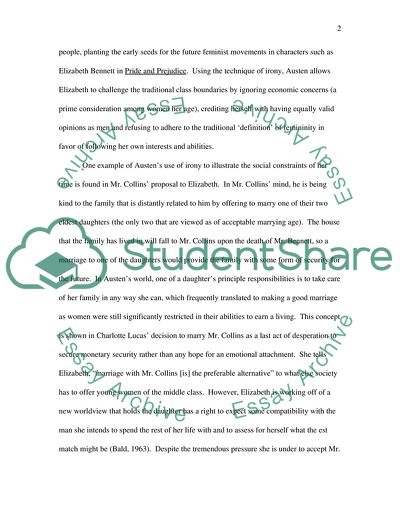Cite this document
(Women's Role in Society in Pride and Prejudice Book Report/Review - 1, n.d.)
Women's Role in Society in Pride and Prejudice Book Report/Review - 1. Retrieved from https://studentshare.org/literature/1712383-pride-and-prejudice
Women's Role in Society in Pride and Prejudice Book Report/Review - 1. Retrieved from https://studentshare.org/literature/1712383-pride-and-prejudice
(Women'S Role in Society in Pride and Prejudice Book Report/Review - 1)
Women'S Role in Society in Pride and Prejudice Book Report/Review - 1. https://studentshare.org/literature/1712383-pride-and-prejudice.
Women'S Role in Society in Pride and Prejudice Book Report/Review - 1. https://studentshare.org/literature/1712383-pride-and-prejudice.
“Women'S Role in Society in Pride and Prejudice Book Report/Review - 1”, n.d. https://studentshare.org/literature/1712383-pride-and-prejudice.


